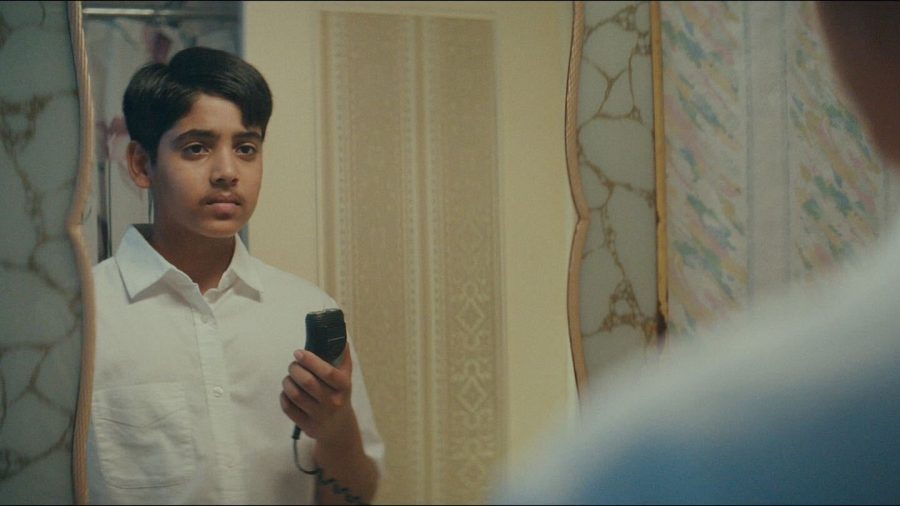Q&A: ‘Mustache’ writer, director Imran J. Khan talks ‘90s nostalgia, impact of Western beauty standards
March 19, 2023
Writer and director Imran J. Khan’s feature debut “Mustache” premiered at South by Southwest on March 12. The film follows 13-year-old Ilyas (Atharva Verma) in mid-90s California as he struggles with transitioning from a private Islamic school to a public high school, alongside being bullied by his peers for his mustache, which he isn’t allowed to shave. The Daily Texan sat down with Khan to discuss the importance of the film’s ‘90s nostalgia, talented child actors and more.
The Daily Texan: How much of Ilyas’ personality and experiences are based on your life?
Imran J. Khan: There’s so many pieces of him that are me, and then there are a lot of things that are a more extreme or fictional version of me at that age. It’s also what I thought I was at that age too, so it’s quite subjective. Your memories of what you think you were like when you were younger are not always the way other people remember. That’s something I discovered through making this film — interrogating my own memories and then talking to other people, and they remember things differently. One thing I wanted (to convey) was a particular mood of the way my brain works, which is this overly dramatic, self-important thing that carries through in the voiceover and the music.
DT: How did Western beauty standards impact Ilyas’s his perception of himself?
IJK: It’s evidenced by the (media) he’s consuming through the film. He’s watching sitcoms and stuff from the ‘90s, especially during that time where there weren’t a ton of minorities on screen, or if (there) was, there would be just one character. He’s obviously influenced by what’s perceived to be normal, even if he doesn’t admit it to himself. A big part of the film is him coming to terms with that, it’s a story of self-acceptance. He’s coming to terms with that even if he’s too young to articulate that.
DT: Why did you decide to set the movie in the ‘90s?
IJK: There’s two aspects to it. One is that I grew up during that time, so if I’m going to tell the most authentic story I can, then it’s got to be set (in the ‘90s) because teenage culture now is so different than (it was) then. I felt like I could tell that story because I lived that story, and a more modern story would be good for somebody else to tell. Secondly, I wanted to recreate that time period for me and my community because the Muslim community in America post-9/11 is a very different time. Trying to assimilate (and) react to something that we had nothing to do (with), but now we have to respond to it. I wanted to go before that so I could show what we were like and what life was like before that. I wanted to do something that (showed) we had a life (and) a community before that.
DT: When casting the movie, was it difficult to find someone to play Ilyas?
IJK: When we were casting this film, we were so worried. “Are we going to find a kid that can do this? Can we be authentic with the casting?” All of those (questions) were swirling around. We ended up finding tons of talented kids for multiple roles. It was pretty awesome to write something like this, unsure if you’ll even find the actor to play it, but I had this suspicion. I think I was that kid when I was 13, like if this movie was being made, I would have auditioned and maybe gotten that part. I (thought), this kid probably exists because I exist. And then, when we were auditioning and doing callbacks, (Atharva Verma) just stood out. He had such an emotionality to him. He had a really high emotional intelligence understanding what was happening in the script. I know he’ll have an incredible career if that’s what he wants to do.











